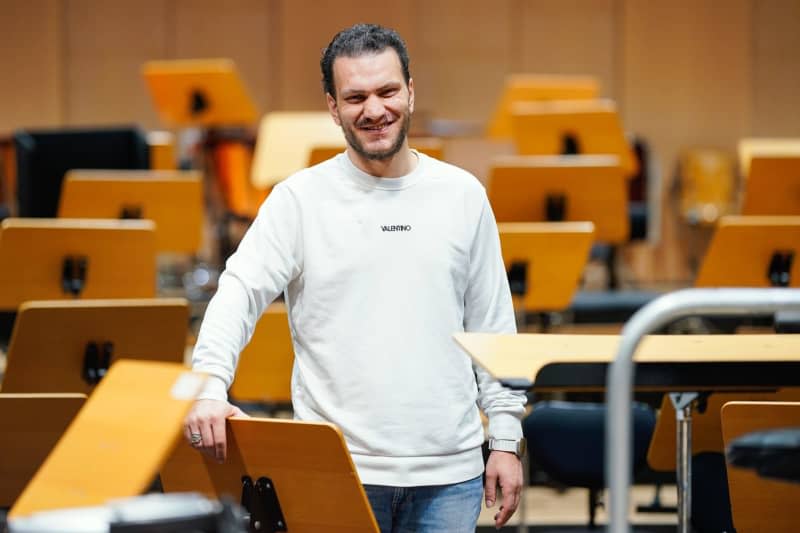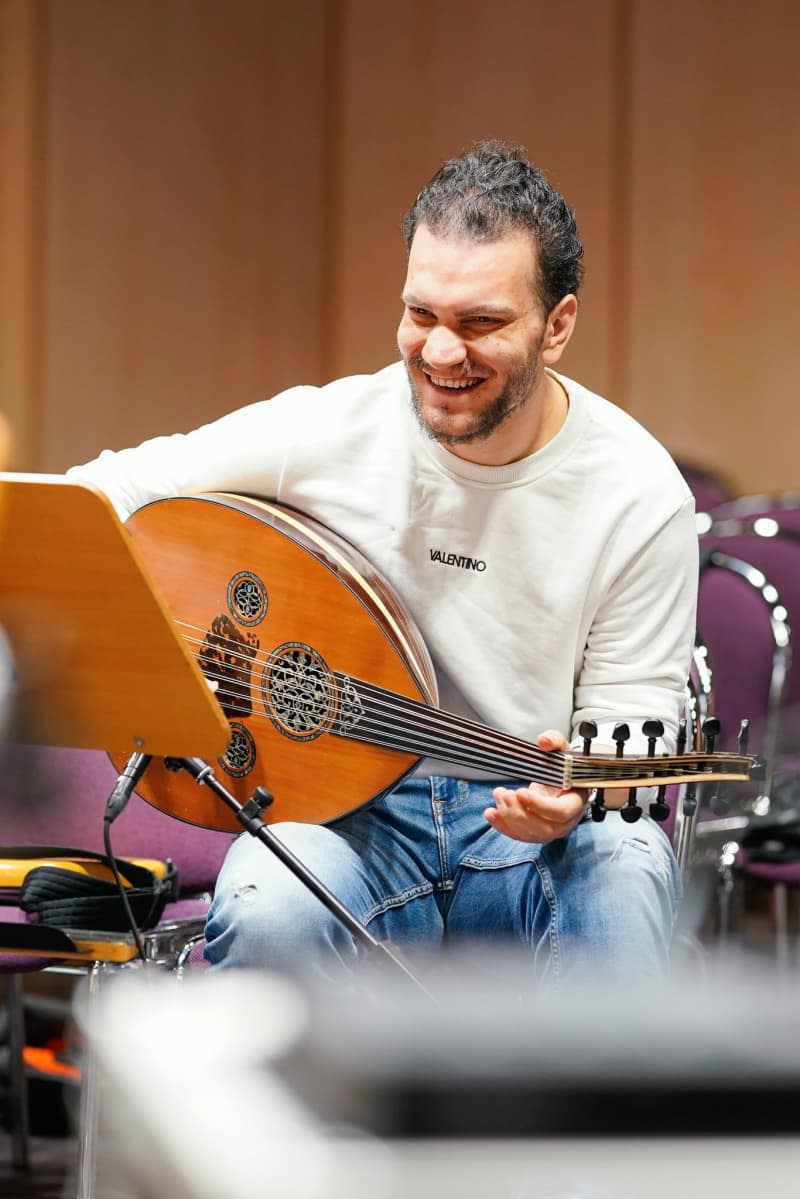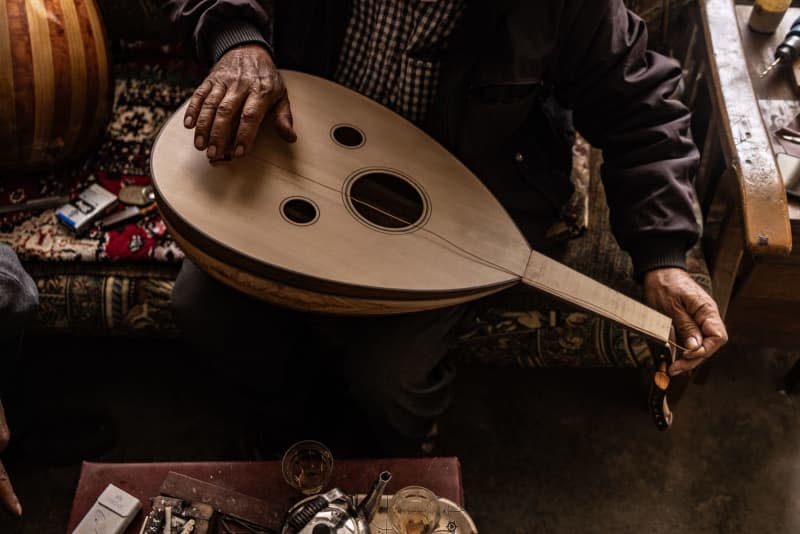Syrian musician writes songs of exile, flight and the scent of home

Sometimes when musician Hesham Hamra plucks the strings of his oud, he is flooded with images of his homeland, Syria.
"Every now and then I close my eyes and go from our house in Damascus to a friend's flat in my head," he says. "Then I smell the scent of jasmine on the streets."
"Jasmine" is also the name of a virtuoso piece he composed for the Ensemble Colourage from Ludwigshafen, a German city located roughly between the French border and Frankfurt.
Colourage is a poetic play on words made up of colour, courage and collage. The group chose it as they sought to bring together music from the Orient and the Occident.
Eight musicians make up the ensemble that was founded four years ago by the Deutsche Staatsphilharmonie Rheinland-Pfalz, the Oriental Music Academy Mannheim (OMM) and the Popakademie Mannheim.
Some of the musicians have Turkish or Syrian roots - like Hamra.
Right now, as the Colourage ensemble practices at the Staatsphilharmonie in Ludwigshafen the distinctive tones of the oud can be heard.
It is an Arabic lute, called by some the "mother of plucked instruments." The traditional instrument is often played in Iran and Syria. It is made of a pear-shaped sound box made of walnut, rose, poplar, ebony or apricot wood.
"My father is also a musician and often had students at home," says Hamra. "I was always there and learnt to play the oud at an early age. I always wanted to be a musician."
But then war broke out in Syria as an uprising against President Bashar al-Assad turned into an all-out civil war.
"I moved to Dubai at the end of 2011 and worked there as a musician," says Hamra. "But I wanted more. I wanted a new life. So I flew to Turkey in 2016, took a boat from there to Greece and then travelled to Germany on foot, so to speak. After 25 days, I reached Passau."
Asked if it was dangerous, he says, "Yes. But you only live once."
After reaching Germany, Hamra played a concert in Mannheim with a borrowed oud and was asked to attend the Popakademie.
Helped by a scholarship, he then did a Bachelor of Arts in world music and studied composition at the music academy. He learned German at the same time.
"I realized on my first day in Germany that I needed the language. It's not easy. Television helps me a little - children's series like 'Little Nick'," he says, laughing.
His German is remarkably good.
Sometimes, says Hamra, he can hardly believe his luck. He came here with nothing and now writes pieces for an orchestra.
André Uelner, project manager at Colourage, says his story is impressive, and not only because the shortage of skilled workers and migration are hot topics in Germany.
"Hesham works incredibly hard. Even his professor Sidney Corbett at the Mannheim University of Music says that he would never have thought that someone could achieve so much in such a short time."
For Uelner, Colourage, founded thanks to funding from the German Federal Cultural Foundation, is first and foremost about music. "How is music thought of in other parts of the world? When I look into this, a light comes on for me and spaces open up."
Everyone in the ensemble brings curiosity to the table - as well as mutual tolerance. "On a structural level, we tried to create a level playing field," he says.
Hamra now has German citizenship, which requires a certain level of language skill plus knowledge about Germany.
But, he says, you never stop learning. "Why do you make music? Why do you go on stage? Why do people come to a concert? What is the connection? I'm interested in all that. Even things behind the scenes: How are decisions made in the organization? What kind of contracts are there? That's the kind of thing I'm interested in."
And then there's the music. Alongside his piece "Jasmin," Hamra has composed "Journey," a work about his flight from his country.
"Hesham came to Germany via the Balkan route with a mobile phone and a credit card," says Uelner. "On the way, he hummed a melody into his mobile phone and saved it."
That melody now provides the composition's leitmotif. The orchestra of the Deutsche Staatsphilharmonie played the world premiere of "Journey" at the start of the year.
"It's actually too cheesy to be true," says Uelner and laughs. "But seriously, many people have played a part in this success story - especially Beat Fehlmann."
Cultural participation is of critical importance to the director of the state philharmonic orchestra, Beat Fehlmann, Uelner adds. But he takes his hat off to the musician.
"Hesham seized his opportunity and made the most of it - through talent, conviction and, not least, hard work."



